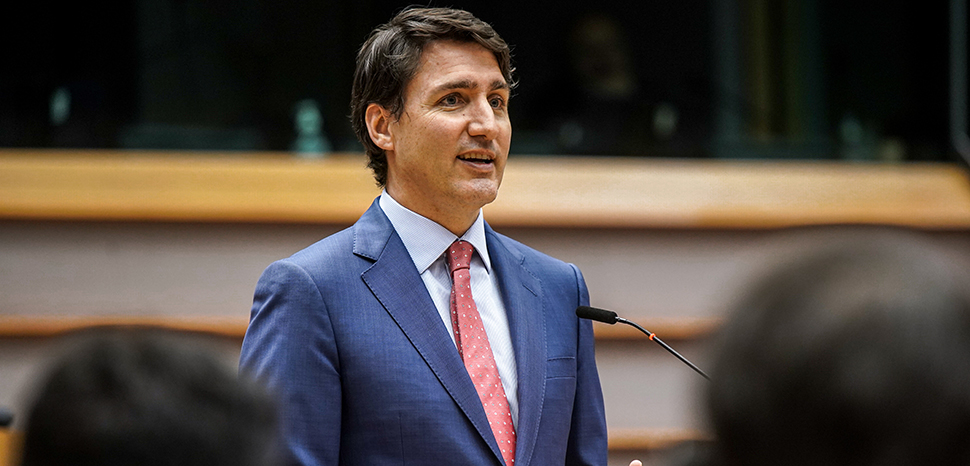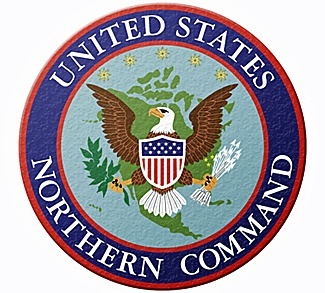Haiti is a failed state. The second-oldest country in the Americas has been consumed by a cycle of suffering since it won its independence from France: unjust indemnities paid to French slaveowners, brutal dictatorships, US occupation, failed foreign interventions, natural disasters, crime, and corruption – the list is endless. Now, Haiti faces three crises simultaneously: a humanitarian crisis, a political crisis, and a security crisis. Evidently, the Haitian people need more than thoughts and prayers to overcome this confluence of crises.
To be clear: only a foreign intervention will restore order in Haiti. Albeit a challenging and complicated task, historic examples provide blueprints for a successful intervention. To meet the moment, Canada should lead the mission and empower t
Humanitarian Crisis
With a GDP per capita of $1, 283.05, Haiti is the poorest country in the western hemisphere. To put this appalling figure into perspective, Haiti’s GDP per capita peaked at $2, 131.89 in 1980 – 43 years ago. In material terms, only 39% of all Haitians have access to electricity, roughly 50% earn less than $1.25 per day, and more than 70% live below the poverty line. Haiti also has the highest infant mortality rate and maternal mortality ratio, and the lowest life expectancy in the Americas.
Haiti’s current humanitarian crisis has lasted over a decade. Prone to natural disasters, a 7.0 magnitude earthquake struck Haiti on January 12, 2010. The earthquake killed more than 220, 000 Haitians, injured over 300,000, left 1.5 million homeless, and decimated 67% of Haiti’s GDP. This humanitarian disaster led to what was then the worst cholera outbreak in history. More than 820,000 Haitians contracted cholera and close to 10,000 died from the disease between 2010 and 2019.
A 7.2 magnitude earthquake struck Haiti on August 14, 2021. This was followed by Hurricane Grace just a few days later. Then, after more than three years without a case, another cholera outbreak was reported in October 2022. This outbreak is driven by a lack of water and sanitation infrastructure. Over a third of Haiti’s population doesn’t have access to clean water, and up to two-thirds has limited access to sanitation services. More than 20,000 Haitians have since contracted cholera, 79% of patients have been hospitalized, and over 400 have died. Today, Haiti is the only country in the Americas where cholera is prevalent.
UNICEF states that more than 2.5 million Haitian children are in dire need of humanitarian assistance. This includes access to shelter, health care, and food. Up to 4.7 million Haitians – almost half of Haiti’s population – face high levels of food insecurity. This ranges from acute malnutrition to catastrophic levels of starvation. In the slum of Carrefour – where two police officers were slain during a traffic stop on January 10, 2023 – over 35% of the population is at risk of starving. In more impoverished communities like Cité-Soleil – home to roughly 400,000 Haitians – more than 65% of the population is at risk of starvation.
These development issues are compounded by a lack of access to education. More than half of Haitians aged 15 or older are illiterate, and roughly 40% of students drop out of school before the end of grade 9. Hundreds of thousands of children are also deprived of an education because 85% of schools are private and public schools are underfunded. While most of the 1,250 schools destroyed by the 2021 earthquake in the departments of Sud, Grand’Anse, and Nippes have not been rebuilt, over 1, 700 schools remained closed due to threats from gangs in the Port-au-Prince area at the end of November 2022. Without an education, Haiti’s future generations – the children tasked with rebuilding the Haitian state after more than a decade of disaster – are unequipped for the challenges ahead.
Political Crisis
Haiti has not had a legitimate president since Jovenel Moïse was assassinated on July 7, 2021. In fact, President Moïse governed by decree even before his assassination. Haiti’s last national elections were held in 2016. Elections were postponed in 2018, 2019, 2021, and 2022. For three years, 10 Senators represented Haiti’s last remaining democratic institution. Yet since their terms expired in January 2023, every seat in the Senate and the Chamber of Deputies is now vacant. As it stands, Prime Minister Henry’s government – which was appointed in irregular circumstances following President Moïse’s assassination – is viewed as illegitimate by most Haitians.
Haiti’s political crisis is further exacerbated by a dysfunctional judicial system. Most of the Supreme Court of Haiti’s 12 seats are vacant, and the court lacks the quorum required to issue rulings. Even more shocking, the legal database Juricaf reveals that the Supreme Court of Haiti last rendered a decision on October 29, 2014. When Justice Jean Joseph Lebrun was appointed president of the Supreme Court of Haiti in November 2022, more than 400 cases remained unresolved.
Last year, Prime Minister Henry’s cabinet appointed 113 judges to district-level courts. Naturally, the constitutional validity of these appointments was criticized as “unconstitutional, illegal and arbitrary” by human rights organizations. After all, Article 175 of the Haitian constitution states that judges must be appointed by the President of Haiti upon the recommendation of officials who are presently not elected. Legal technicalities aside, these appointments were meant to ease the burden on Haiti’s chaotic court system and end the humanitarian catastrophe in the country’s overcrowded prisons.
In response, gangs ransacked the Port-au-Prince courthouse, seized the judicial safe and destroyed physical evidence that cannot be recovered. Given that Haiti’s courts do not have a digital filing system, this makes it difficult – if not impossible – to proceed with criminal prosecutions. This includes the unresolved, high-profile assassinations of Monferrier Dorval in 2020 and President Moïse in 2021. What’s more, it undermines the rule of law by intimidating judges from administering justice and deterring litigants from seeking it.
Security Crisis
Haiti’s humanitarian disaster and institutional paralysis are exacerbated by a security vacuum. The Haitian Armed Forces were disbanded in 1995, and only reconstituted in 2018 to assist with aid relief, border security and transnational crime. Today, there are roughly 1, 200 active soldiers. They are not a fighting force by any stretch of the imagination.
The closest thing Haiti has to a security apparatus is the Haitian National Police (PNH). In 2021, there were approximately 16,000 police officers. Unfortunately, that figure has plunged to just 10,000 today due to gang violence and corruption within the ranks. Those who remain are often tied to specific government officials or business magnates. The PNH is underfunded, understaffed, poorly equipped, and not well-trained. What’s more, the PNH doesn’t have a review mechanism to vet or scrutinize its officers. Naturally, these factors have caused the institution to deteriorate and rendered the PNH incapable of fulfilling its mandate.
While the United Nations estimates that gangs control up to 60% of Port au Prince, most Haitians believe that number is closer to 100%. Freedom of movement remains restricted. From 2021 to 2022, kidnappings more than doubled and murders increased by over 30%. While acts of armed violence (including shooting, ransacking, kidnapping, and looting) against schools have increased more than nine-fold in one school year, an average of five police officers have been murdered per month since the assassination of President Moïse in July 2021. 16 policemen were murdered in January 2023 alone. Evidently, the security situation is dire.
Foreign Intervention
In response to Port-au-Prince’s descent into anarchy, the United States – already spread thin across Europe and Asia – has lobbied Canada to lead a foreign intervention in Haiti. In November 2022, the Canadian government began sanctioning some of Haiti’s most prominent powerbrokers. Nevertheless, this has not led to asset freezes or seizures for property held in Canada. Unfortunately, the Canadian government’s emphasis on sanctioning corrupt Haitian elites is a band aid for a bullet wound. Contrary to conventional wisdom, sanctions and travel bans cannot restore order in a failed state consumed by multiple crises.
In January 2023, the Canadian Armed Forces airlifted Haitian-purchased armored personnel carriers to Haiti. In February 2023, Canada announced it will deploy a CP-140 long-range patrol aircraft to gather intelligence and two Royal Canadian Navy vessels off the coast of Haiti. While these announcements are long overdue, they fail to account for the fact that most of Haiti’s problems are on land. What’s more, it seems Canada has stopped just short of launching a foreign intervention. Unfortunately, Haiti’s confluence of crises has reached a breaking point where there are no alternatives.
To meet the moment, Canada should lead the foreign intervention in Haiti. This multinational coalition should include willing partners like Jamaica and The Bahamas as well as logistics and intelligence support from the United States. The mission’s primary objective should be to train and arm the PNH – which is and should remain the primary fighting force in Haiti. After all, the future of the Haitian state will be built on the PNH’s back. Despite their contextual differences, the lessons learned from U.S. support for the Kurdish-led Syrian Democratic Forces in the fight against ISIS – and how it relates to the state building project in the Autonomous Administration of North and East Syria (AANES) – provides a compelling example to emulate.
Contrary to public discourse, there are several cases of successful foreign interventions. NATO’s aerial campaign against Serbia averted a genocide in Kosovo. UNMIL’s generous weapon buy-back program helped disarm and demobilize more than 100, 000 combatants in Liberia. Australia led a 22-member coalition that restored security and eased the transition to an independent East Timor. The United Kingdom brought a failed state back from the brink of anarchy in Sierra Leone. The list of historic examples that provide blueprints for Canada’s foreign intervention to succeed goes on and on.
As Thomas Hobbes famously observed in Leviathan, the world is chaotic. Power gives order to chaos. Order is the foundation of every society. In the free world, that order evolved to be democratic. Elsewhere, that order is maintained in an authoritarian manner. In Haiti, the fragile order that exists is imposed by roughly 200 gangs. Limited in geographic scope, that fragile order is shaped in the image of the gangs to advance their interests. Hence, Haiti has become a failed state that serves as a transit point for drugs imported from Latin America to the U.S. and for guns exported from the U.S. to Latin America.
To be clear: Canada has a moral obligation to help the Haitian people rebuild their state, a national interest in restoring order in Haiti, and historic examples that provide blueprints for its foreign intervention to succeed. Inaction fueled by a lack of leadership and empathy only prolongs and compounds the suffering of the Haitian people. Evidently, Haiti needs more than thoughts and prayers to overcome this confluence of crises. Only a foreign intervention will restore order in Haiti. To meet the moment, Canada should lead the mission and empower the Haitian people to rebuild their state.
The views expressed in this article belong to the authors alone and do not necessarily reflect those of Geopoliticalmonitor.com.




